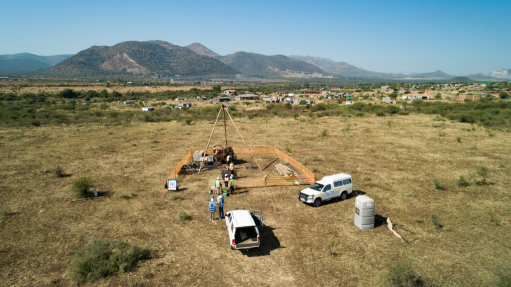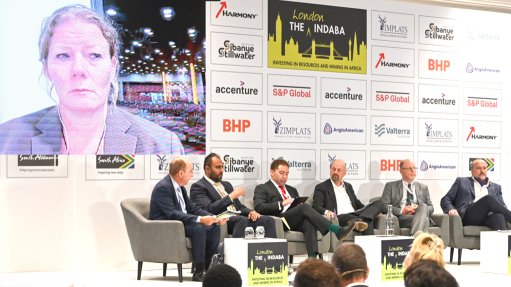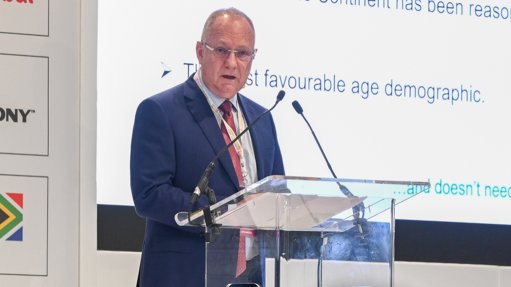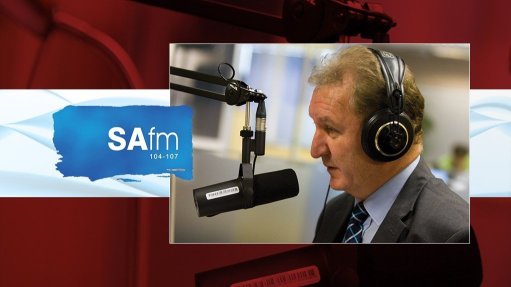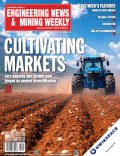Literacy training gives mines communities a voice
This article has been supplied and will be available for a limited time only on this website.
The human resource development component of a social labour plan (SLP) does not just upskill communities for employment on mines. Just as importantly, adult literacy training also addresses a serious weakness in communities that prevents them from partaking meaningfully in the SLP process and engaging with mining companies, municipalities and the Department of Mineral Resources throughout the lifecycle of the mine.
“These communities are very unique in that they are rural and secluded and rely heavily on mines for their livelihood. They also have very high illiteracy levels. Many of the communities where we facilitate adult literacy training have literacy levels well below those transferred by adult education and training (AET) level 1. This means that these population groups often cannot write short messages to family or read a road sign,” says Marco Maree, a Training & Development Expert of Triple E Training.
Triple E Training is engaged by mines to facilitate literacy and numeracy training in these communities as part of the human resources development component of SLPs. This is a way of upskilling low and unskilled members of communities from where employees are recruited to work on these operations. However, the company’s clients also view this as an investment into future-proofing their operations by equipping communities with the skills that they need to participate in the SLP process.
This is becoming increasingly important considering growing tension between mines and host communities throughout the world. Among the chief causes is poor communications between mines, municipalities and surrounding communities regarding land use, mining pollution and service delivery. It is estimated that about 35 protests take place in South African mining communities every month and many of them are non-service delivery related. When communities do not understand the channels and processes by which they can raise their concerns, they will protest. Many will hold a mine directly responsible for delivering services because they do not know that this is the responsibility of a municipality.
Triple E Training’s service includes evaluating the foundational skills of community members before placing them at a suitable AET level. Oftentimes, members of these communities have to start at AET level 1 or even pre-AET so that they can be eased into the programme.
High illiteracy in these communities is primarily because of the current state of education in rural areas, which comprise 31% of the total area of the country. Children and teenagers struggle just to get to school due to poor transport infrastructure. The schools, themselves, are often dilapidated and lack libraries to support literacy education and computer rooms, which are needed to teach essential basic digital literacy skills. These issues are compounded by the lack of parental interest in children’s education. Because many of these families are poor, they tend to prioritise work over education, with children from single parent homes often also expected to help take care of their younger siblings while grownups work. This leaves very
little time to attend classes regularly, do homework or study for tests and exams. Underqualified teachers and multi-grade teaching at these schools also contribute to the poor quality of education in these areas.
The poor performance of public-sector adult education and training programmes in rural areas exacerbates the situation. They continue to grapple with poor class attendance and pass rates due to irrelevant content and the manner in which it is taught. Many of these centres also lack resources need to effectively implement these programmes.
Therefore, well-co-ordinated mining community AET programmes play a critical role in enabling the many functionally illiterate adults in these areas to acquire foundational skills. This is not just so that they can perform labour-intensive work on mines. Foundational literacy skills enable people to make sense of the world around them. Therefore, it is also a fundamental pillar of political literacy which empowers people to contribute to the betterment of their communities and society at large.
“Many of the members of these communities with who we engage have never seen or heard of an SLP or understand their role in developing this complicated system as one of the primary beneficiaries of mining operations,” Maree says. “This is but one example of how illiteracy impedes people from enjoying a range of human rights and quality of life, especially women who remain among the most vulnerable in these communities.” As he notes, women in rural areas, including mining communities, do not only struggle to access basic amenities and employment opportunities, but also a quality education.
In order for mining communities to derive the full benefit from mining, they also need to be extensively involved in monitoring mining and changes in plans initially agreed upon between stakeholders. SLPs are updated every five years in line with the requirements of the Mineral and Petroleum Resources Development Act.
All too often; however, only a small group of community members are involved in meetings with municipalities and mines.
It is also common practice for mines and municipalities to just engage community leaders as representatives of communities when mining takes place on communal land. However, as Maree notes, there have been many instances where community leaders have intentionally kept community members in the dark so that they can mainly benefit from the SLPs. When community members see their leaders benefit from the mine at their expense, it creates tension between the community and mine.
“It becomes even easier to undermine the process when the vast majority of the population of these communities are illiterate. They are relying on their leaders to critically engage with the content of the plan and hold mines accountable when they are not meeting the targets agreed
upon. Even if they can access SLPs from mines, municipalities or the DMR, how do they interrogate the process if they cannot read for meaning?” he says.
As part of Triple E Training’s service, the company identifies community members that should participate in the programme by engaging the community directly. The company does this together with community leaders and municipalities but is always aware of political influences and hidden agendas. It also explains the importance of the training to the community to ensure high participation and class attendance at suitable facilities identified by Triple E Training. These are located within the communities and close to the learners so that they can easily attend classes.
Maree concludes by noting that while community adult literacy and training has remained a mainstay of mine’s skills development programme, it fulfils another important role “by giving community members a voice!”
Comments
Announcements
What's On
Subscribe to improve your user experience...
Option 1 (equivalent of R125 a month):
Receive a weekly copy of Creamer Media's Engineering News & Mining Weekly magazine
(print copy for those in South Africa and e-magazine for those outside of South Africa)
Receive daily email newsletters
Access to full search results
Access archive of magazine back copies
Access to Projects in Progress
Access to ONE Research Report of your choice in PDF format
Option 2 (equivalent of R375 a month):
All benefits from Option 1
PLUS
Access to Creamer Media's Research Channel Africa for ALL Research Reports, in PDF format, on various industrial and mining sectors
including Electricity; Water; Energy Transition; Hydrogen; Roads, Rail and Ports; Coal; Gold; Platinum; Battery Metals; etc.
Already a subscriber?
Forgotten your password?
Receive weekly copy of Creamer Media's Engineering News & Mining Weekly magazine (print copy for those in South Africa and e-magazine for those outside of South Africa)
➕
Recieve daily email newsletters
➕
Access to full search results
➕
Access archive of magazine back copies
➕
Access to Projects in Progress
➕
Access to ONE Research Report of your choice in PDF format
RESEARCH CHANNEL AFRICA
R4500 (equivalent of R375 a month)
SUBSCRIBEAll benefits from Option 1
➕
Access to Creamer Media's Research Channel Africa for ALL Research Reports on various industrial and mining sectors, in PDF format, including on:
Electricity
➕
Water
➕
Energy Transition
➕
Hydrogen
➕
Roads, Rail and Ports
➕
Coal
➕
Gold
➕
Platinum
➕
Battery Metals
➕
etc.
Receive all benefits from Option 1 or Option 2 delivered to numerous people at your company
➕
Multiple User names and Passwords for simultaneous log-ins
➕
Intranet integration access to all in your organisation










